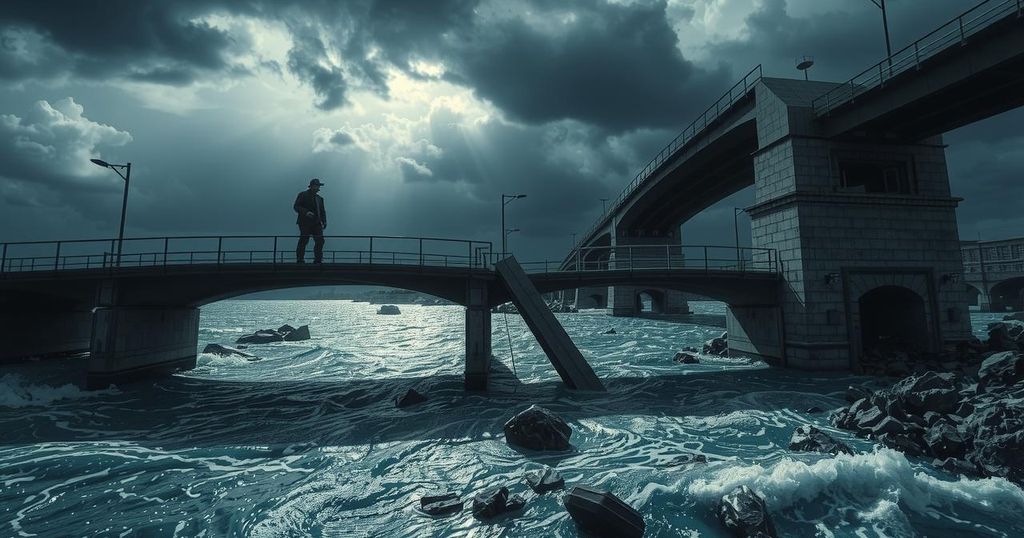Civilians Face Dilemma Amid Escalating Conflict in Eastern Congo
In eastern Congo, civilians are trapped between the advancing M23 rebels and a weakened Congolese army, forcing difficult choices. Many flee to Rwanda, which is accused of supporting the rebels, amidst deepening insecurity following the capture of Goma. Humanitarian conditions are deteriorating, with thousands displaced and no safe haven as the conflict continues to unfold.
In eastern Congo, millions find themselves forced to make a harrowing decision as hostilities escalate between the M23 rebels and the Congolese government. They must choose between seeking refuge within the war-torn country, where the military is faltering, or fleeing to Rwanda, where the rebels are suspected of receiving support. Many civilians, like Imani Zawadi, express distrust in both options, feeling abandoned amid a resurgence of violence that has overtaken cities like Goma.
The M23 rebels have made significant advances, capturing Goma and putting tremendous pressure on the beleaguered Congolese army, which has been supported by a substantial UN peacekeeping force. The situation remains dire as approximately 1,200 Congolese, including surrendering soldiers, have sought asylum in Rwanda. There are fears that the M23 will occupy Goma and establish a new administrative control in the pivotal city, rich in natural resources.
Rwanda, having been accused of backing the M23, justifies its involvement by claiming it seeks to protect ethnic Tutsis from threats posed by remnants of the genocide-era forces. President Paul Kagame has articulated concerns about groups in Congo that he believes could represent a security risk for Rwanda. Meanwhile, Congolese President Felix Tshisekedi has resisted direct negotiations with the M23, which has prompted unrest in the Congolese capital, Kinshasa.
Civilians fleeing to Rwanda express a complex mix of fear and skepticism regarding their choices, with many acknowledging the Congolese military’s inadequacies while contesting Rwandan influence in their homeland. Refugees like Rose Clemency emphasize their resistance to accepting M23’s control and the necessity of combating perceived foreign intervention. Humanitarian conditions remain precarious, with fears rising over widespread displacement as conflict continues in Goma.
As calls for a ceasefire mount, the plight of refugees grows increasingly dire, marking Goma not only as a site of conflict but as a crucial humanitarian hub potentially lost to war. The United Nations reports that thousands are left with no safe haven as violence displaces families and disrupts essential services. Civilians describe their position as hostages to the rebels, showcasing the deepening crisis and uncertainty in the region.
The Democratic Republic of Congo has been plagued by violence for decades, primarily fueled by internal conflict and external interests in its abundant natural resources. The M23 rebel group’s resurgence has reignited fears among civilians who have experienced prolonged insecurity. The chaotic environment exacerbated by the rebel advancements has prompted many to flee, raising questions about the international community’s response and the effectiveness of the Congolese military in safeguarding its citizens amidst such turmoil.
The situation in eastern Congo is critical, with civilians caught amidst escalating violence and a precarious choice between unreliable refuge in their own country and crossing into Rwanda. The conflict has not only displaced thousands but has also raised deeper concerns over regional stability and the reliability of the Congolese military. Continued humanitarian crises and calls for ceasefires must prompt immediate international intervention to alleviate the suffering of affected populations in this volatile region.
Original Source: apnews.com




Post Comment